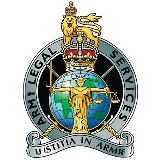*/

During a career break, you don’t lose skills, you build on them! Juliette Levy outlines the TRWG’s campaign to attract returners and movers, boost confidence and promote the cognitive diversity they bring
While corporates and public sector bodies are supportive and encouraging of recruitment from returners or movers, and recognise the diversity they offer, many sets of chambers are further behind in their appreciation and understanding of these barristers.
The Talent Retention Working Group (TRWG) was set up by Middle Temple’s Membership Committee in 2019 to support and promote the interests of such members who are either returning to practice following absence for a variety of reasons ranging from maternity/paternity, caring leave to pursing other ventures (‘a returner’) or moving practice areas, or from chambers to employment or vis a versa (‘a mover’). TRWG supports all barristers: male, female and non-binary; employed and self-employed.
The Inn recognised that greater support was needed for this cohort of members who could experience problems such as:
By supporting this cohort of members, the Inn aims to (i) promote the cognitive diversity that such candidates offer where different backgrounds, approaches, skills and experience enrich the offering of an employer or chambers, and (ii) ensure diversity, equality and inclusion.
We know from BSB statistics that women leave the profession in higher numbers than their white male counterparts, particularly around the 10-year level, and that those from ethnic minority backgrounds find it harder to establish their practice and have more periods away from practice. This is a serious problem.
In order to capture a broad spectrum of experience and expertise, members of the TRWG include employed and self-employed barristers, the Inn’s Directors of Education and Membership, returners, movers, a senior clerk, a High Court Judge and a representative of the Bar Council. The aim is to provide guides, information, workshops, seminars and social events on a range of issues and topics that can support returners and movers.
To date, we have launched a variety of initiatives, some of which are detailed below.
We have created a panel of experienced practitioners who serve as coaches to returners or movers and have direct experience of the issues. Once paired, the coachee has an opportunity to discuss issues and concerns in a confidential space.
In order to provide an information port for returners and movers, we have published detailed tips for returners and movers on the Inn’s website. This is an updated portal which provides information on a variety of topics and links, including:
These events include:
These are designed to enable members to network with each other, share experiences and build confidence. We found from our advocacy events that confidence building, and imposter syndrome were issues of particular concern.
In order to assist chambers in their appreciation and understanding of the cognitive diversity and other benefits that returners and movers can offer them we have put together a best practice guide (‘the Guide’). The purpose of the Guide is to set out a best practice guidance for chambers, which it is hoped they will take note of and perhaps even adopt. The Guide is available here.
Case studies from members of the TRWG highlight the importance of supporting and promoting the interests of movers and returners (see below).
Our ability to apply our legal training to a range of contexts and situations is invaluable to employers in many sectors and such work is a great opportunity to broaden your skill set outside of the Bar.
The impediments faced by movers and returners and their link to the lack of retention is a Bar-wide issue that needs to be acknowledged and addressed. Please take a look at our scheme and Guide, and feel free to email G.Dorey@middletemple.org.uk for further information on our initiative.
Genevieve Harris, Legal Counsel, Bank of England
I qualified and practised at the self-employed Criminal Bar before going in-house to a charity and think tank where I really enjoyed the policy nexus in that role. After a few years, however, keen to refresh my trial advocacy skills, I returned to the self-employed Bar but became pregnant with my first child after just a year. I then took a lengthy career break while I had my children and saw through their early years before returning to practice.
I was grateful to be accepted into a formal ‘career returners’ programme with the Bank of England’s Legal Directorate, subsequent to which I was appointed legal counsel. I have therefore been both a career returner and a mover.
In terms of challenges I have faced, these were mostly issues of confidence – how to market myself to employers and chambers and build trust with clients? I realised I had to own my career break and be my own advocate – you don’t lose your skills, you build on them. Also, with each move there has been a steep learning curve. To an extent I just had to get my head down and push through but I also benefited hugely from the collegiality of the Bar, the support of Middle Temple and the in-house training offered by my flexible and supportive employer. I really do encourage returners to consider the Employed Bar – working in a team and being able to draw on in-house training and support is worth its weight in gold.
Shazia Akhtar, Gatehouse Chambers
I have taken two periods away from the Bar: the first for five years when I had my children, and the second on my return when I expressed a wish to work part time and from abroad as within a few months my partner’s work took us to Geneva.
This in itself was unusual. My experience in chambers at that time was women either left when they had (or were contemplating having) children, or returned to work after a very short period of leave. Parental leave and sabbaticals in my chambers are much more commonplace now.
During my initial leave, I kept my place in chambers but did not work at the Bar. Instead, I edited an English law journal and worked abroad as a legal consultant for the then Department for International Development and the British Council, including on ADR projects.
When I expressed a wish to work part time from abroad there was no precedent for this happening in chambers. As a result, there were inevitable back and forth discussions as to how (and if!) this would work.
Some of the difficulties I faced at the start were financial: to remain a tenant, I was required to pay room rent. It was not easy. There were times I contemplated leaving, particularly when I considered the financial constraints of working part time but paying chambers’ rent and high childcare costs etc. I also had to overcome my real worry (shared by some members of chambers) that it would be impossible to rebuild my practice.
Happily, a solution was found, and during my five years in Geneva I worked part time at the Bar, flying back for cases, and cultivating key clients. Additionally, I worked in Geneva as a legal consultant for UNHCR and other agencies and represented individuals before the UN Administrative Appeals Tribunal in Geneva.
On my return, I have tipped the balance back to working at the Bar, and rebuilt my practice, supported by an excellent practice team and colleagues.
I have become more involved in the collegiate side of our profession, particularly now that I am able to dedicate more time to chambers’ committees and wider Bar activities such as mentoring, the Bar Council, and being a member of the Middle Temple Talent Retention Working Group.
It is possible to manage longer breaks at the Bar and resume a successful practice. I was assisted by many supportive people and it helped enormously talking to barristers and senior clerks from other sets who had taken long career breaks and managed a successful return to practice.
If you have had lengthy periods of time away, you may not be moving at the same pace as your peers, but if you can live with that and find a work-life balance to suit you, then it ought to be eminently possible to take a career break and return to the Bar.
I just wish I had known that with more confidence from the outset!

While corporates and public sector bodies are supportive and encouraging of recruitment from returners or movers, and recognise the diversity they offer, many sets of chambers are further behind in their appreciation and understanding of these barristers.
The Talent Retention Working Group (TRWG) was set up by Middle Temple’s Membership Committee in 2019 to support and promote the interests of such members who are either returning to practice following absence for a variety of reasons ranging from maternity/paternity, caring leave to pursing other ventures (‘a returner’) or moving practice areas, or from chambers to employment or vis a versa (‘a mover’). TRWG supports all barristers: male, female and non-binary; employed and self-employed.
The Inn recognised that greater support was needed for this cohort of members who could experience problems such as:
By supporting this cohort of members, the Inn aims to (i) promote the cognitive diversity that such candidates offer where different backgrounds, approaches, skills and experience enrich the offering of an employer or chambers, and (ii) ensure diversity, equality and inclusion.
We know from BSB statistics that women leave the profession in higher numbers than their white male counterparts, particularly around the 10-year level, and that those from ethnic minority backgrounds find it harder to establish their practice and have more periods away from practice. This is a serious problem.
In order to capture a broad spectrum of experience and expertise, members of the TRWG include employed and self-employed barristers, the Inn’s Directors of Education and Membership, returners, movers, a senior clerk, a High Court Judge and a representative of the Bar Council. The aim is to provide guides, information, workshops, seminars and social events on a range of issues and topics that can support returners and movers.
To date, we have launched a variety of initiatives, some of which are detailed below.
We have created a panel of experienced practitioners who serve as coaches to returners or movers and have direct experience of the issues. Once paired, the coachee has an opportunity to discuss issues and concerns in a confidential space.
In order to provide an information port for returners and movers, we have published detailed tips for returners and movers on the Inn’s website. This is an updated portal which provides information on a variety of topics and links, including:
These events include:
These are designed to enable members to network with each other, share experiences and build confidence. We found from our advocacy events that confidence building, and imposter syndrome were issues of particular concern.
In order to assist chambers in their appreciation and understanding of the cognitive diversity and other benefits that returners and movers can offer them we have put together a best practice guide (‘the Guide’). The purpose of the Guide is to set out a best practice guidance for chambers, which it is hoped they will take note of and perhaps even adopt. The Guide is available here.
Case studies from members of the TRWG highlight the importance of supporting and promoting the interests of movers and returners (see below).
Our ability to apply our legal training to a range of contexts and situations is invaluable to employers in many sectors and such work is a great opportunity to broaden your skill set outside of the Bar.
The impediments faced by movers and returners and their link to the lack of retention is a Bar-wide issue that needs to be acknowledged and addressed. Please take a look at our scheme and Guide, and feel free to email G.Dorey@middletemple.org.uk for further information on our initiative.
Genevieve Harris, Legal Counsel, Bank of England
I qualified and practised at the self-employed Criminal Bar before going in-house to a charity and think tank where I really enjoyed the policy nexus in that role. After a few years, however, keen to refresh my trial advocacy skills, I returned to the self-employed Bar but became pregnant with my first child after just a year. I then took a lengthy career break while I had my children and saw through their early years before returning to practice.
I was grateful to be accepted into a formal ‘career returners’ programme with the Bank of England’s Legal Directorate, subsequent to which I was appointed legal counsel. I have therefore been both a career returner and a mover.
In terms of challenges I have faced, these were mostly issues of confidence – how to market myself to employers and chambers and build trust with clients? I realised I had to own my career break and be my own advocate – you don’t lose your skills, you build on them. Also, with each move there has been a steep learning curve. To an extent I just had to get my head down and push through but I also benefited hugely from the collegiality of the Bar, the support of Middle Temple and the in-house training offered by my flexible and supportive employer. I really do encourage returners to consider the Employed Bar – working in a team and being able to draw on in-house training and support is worth its weight in gold.
Shazia Akhtar, Gatehouse Chambers
I have taken two periods away from the Bar: the first for five years when I had my children, and the second on my return when I expressed a wish to work part time and from abroad as within a few months my partner’s work took us to Geneva.
This in itself was unusual. My experience in chambers at that time was women either left when they had (or were contemplating having) children, or returned to work after a very short period of leave. Parental leave and sabbaticals in my chambers are much more commonplace now.
During my initial leave, I kept my place in chambers but did not work at the Bar. Instead, I edited an English law journal and worked abroad as a legal consultant for the then Department for International Development and the British Council, including on ADR projects.
When I expressed a wish to work part time from abroad there was no precedent for this happening in chambers. As a result, there were inevitable back and forth discussions as to how (and if!) this would work.
Some of the difficulties I faced at the start were financial: to remain a tenant, I was required to pay room rent. It was not easy. There were times I contemplated leaving, particularly when I considered the financial constraints of working part time but paying chambers’ rent and high childcare costs etc. I also had to overcome my real worry (shared by some members of chambers) that it would be impossible to rebuild my practice.
Happily, a solution was found, and during my five years in Geneva I worked part time at the Bar, flying back for cases, and cultivating key clients. Additionally, I worked in Geneva as a legal consultant for UNHCR and other agencies and represented individuals before the UN Administrative Appeals Tribunal in Geneva.
On my return, I have tipped the balance back to working at the Bar, and rebuilt my practice, supported by an excellent practice team and colleagues.
I have become more involved in the collegiate side of our profession, particularly now that I am able to dedicate more time to chambers’ committees and wider Bar activities such as mentoring, the Bar Council, and being a member of the Middle Temple Talent Retention Working Group.
It is possible to manage longer breaks at the Bar and resume a successful practice. I was assisted by many supportive people and it helped enormously talking to barristers and senior clerks from other sets who had taken long career breaks and managed a successful return to practice.
If you have had lengthy periods of time away, you may not be moving at the same pace as your peers, but if you can live with that and find a work-life balance to suit you, then it ought to be eminently possible to take a career break and return to the Bar.
I just wish I had known that with more confidence from the outset!
During a career break, you don’t lose skills, you build on them! Juliette Levy outlines the TRWG’s campaign to attract returners and movers, boost confidence and promote the cognitive diversity they bring

By the Chartered Governance Institute UK Ireland

Q and A with Major Susie Brooke, Legal Officer in Army Legal Services

Have you considered being a barrister in the British Army? Here’s an insight into a career in Army Legal Services

Clare describes her journey from Crown Prosecution Service legal trainee to Senior Crown Prosecutor, a typical ‘day in the life’ and the inspiration she draws from her career

What's it like being a legal trainee at the Crown Prosecution Service? Amy describes what drew her to the role, the skills required and a typical day in the life

Barristers can learn more about the varied arenas in which their mediation skills can be deployed at the Civil Mediation Council Annual Conference on 6 and 7 November 2024